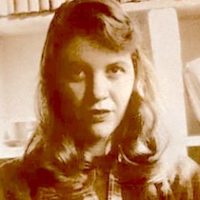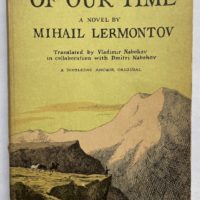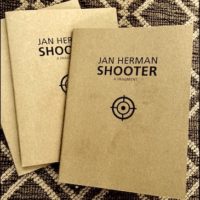silent armies
still gather
within …
heart-sick, we await
a new year of war
without
Arts, Media & Culture News with 'tude
by Jan Herman
by Jan Herman
by Jan Herman
by Jan Herman
by Jan Herman
by Jan Herman
by Jan Herman
by Jan Herman

Kerouac fans In The Netherlands have been celebrating his centennial with readings, film presentations, and concerts throughout 2022. The celebration will culminate on Oct. 9 at the artists’s village of Ruigoord, near Amsterdam. An international gathering of writers, performers, and scholars will pay tribute, along with keynote speakers Joyce Johnson and Ed Sanders, who are to participate via Zoom.
by Jan Herman

“It’s a late winter’s afternoon on the top of Cross Hill, with Hardcastle Crags on one side and Colden Valley on the other. Down in their depth of hibernating trees and gritstone slabs, darkness isn’t coming down — it’s rising like a cold damp tide.” So begins Jay Jeff Jones’s uncommonly rich meditation on the poetic afterlife. It arrives nicely timed to an upcoming celebration of Sylvia Plath for what would have been her 90th birthday.
by Jan Herman

The cover of this mass-market paperback of Mihail Lermontov’s 1840 novel, “A Hero of our Time,” was designed by Edward Gorey. It is taken from a portion of a painting by Lermontov. The typography is also by Gorey. I show it here because it is such a gem, and because a cover of this caliber doesn’t often come along. The 1951 paperback edition was the first publication of of Vladimir Nabokov’s translation from the Russian in collaboration with Dmitri Nabokov.
by Jan Herman
by Jan Herman
![Heathcote Williams [Photo: JH, 2013]](https://www.artsjournal.com/herman/wp/wp-content/uploads/2017/07/heathcote-williams-photo-copy-200x200.png)
‘The people who run Tesco must be Buddhists / You go in there and things are exactly as they should be / There is nothing that you could possibly want / Bits of telepathic animals neatly shrouded in heat-raised polystyrene / With Magic-Maker gravestones. / Dyed tomato mulch slobbering to itself in lead-lined tubular coffins, / Zilched by monosodium glutomate.’ — Heathcote Williams
by Jan Herman
by Jan Herman
by Jan Herman

“SHOOTER: A Fragment” is just out from Moloko Print in its new chapbook series. It begins: “Jerry Crane did not believe in perfection any more than he believed in his real name. If he had, he would never have worked as a shooter for the tabloids. Crane was born Jiri Kiranek, a truth-telling fabulist, tall and lean, a refugee from wealth and privilege. In his younger days he was often high speed, always riffing, full of imagination, his bitter humor tinged with sardonic taunts. Now not quite in middle age, he still had a facile street-smart intellect. He told ambling, long-limbed tales. It was a peculiar form of truth-telling.”
by Jan Herman
by Jan Herman
an ArtsJournal blog